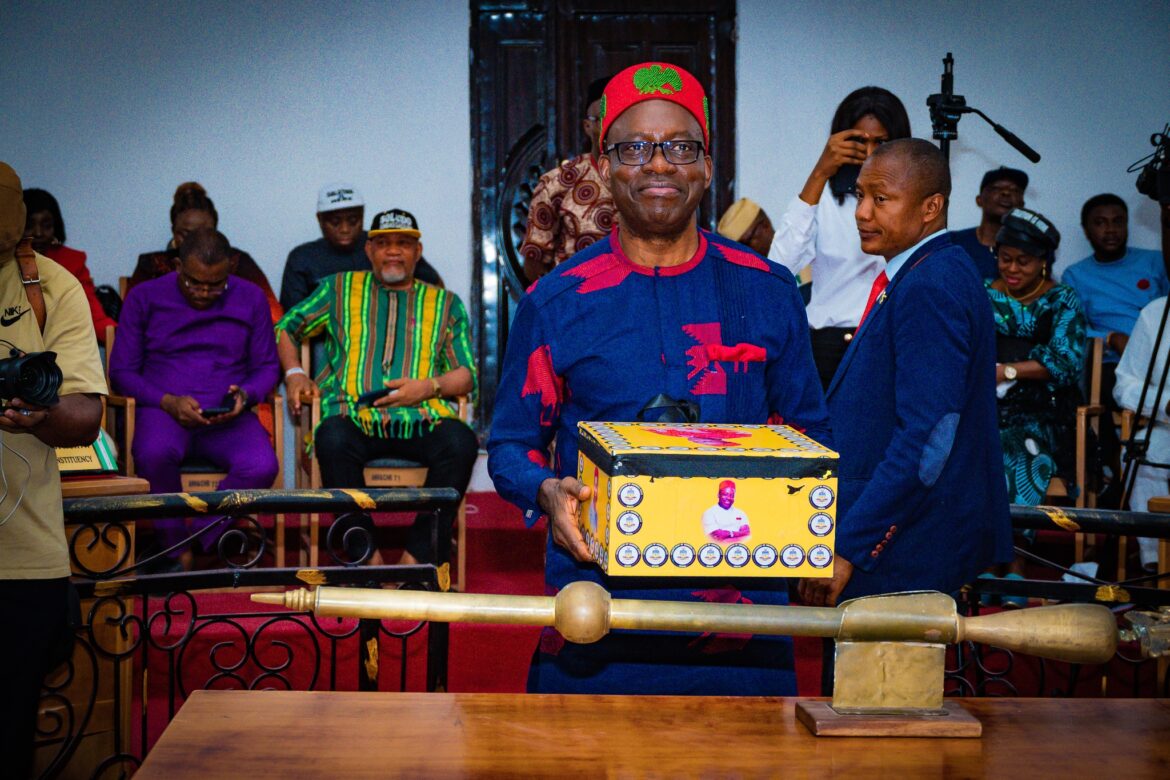Prof. Charles Chukwuma Soludo CFR, the Executive Governor of Anambra, on Tuesday, presented the draft copy of the state’s 2025 fiscal year budget estimate of ₦606.9 Billion to the State House of Assembly. The document titled Changing Gears 2.0 represents a 48.0% increase from the last year’s N410,132,225,272 budget size.
In the financial document, recurrent expenditures (77% of the total budget) account for N139.5 billion while capital expenditures got N467.5 billion (23%). While the budget deficit, estimated at N148.3 billion, is to be funded through revenue growth or borrowing from financial institutions.
The governor in his presentation clarified that in both 2023 and 2024, the state did not borrow to finance budget deficits and a pointer that it might not borrow to fund any deficit in the 2025 budget. He hinged the success “on transparency, accountability, and sustainability.”
Soludo also pointed out that “relative to 2024, several key sectors are seeing significant increases: the administrative sector by 45.5%; the Economic sector by 40.1%; the Judiciary sector by 51.3%; the social sector by 82.7%; Education by 101.4%; Health by 57.1%; and Infrastructure investment by 38.9%. Also, the state is “building upon the iconic projects initiated in 2024 while introducing new ones. Infrastructure and economic transformation as well as human capital development remain the kernel of this administration, and, significantly, at least 70% of the budget is allocated to these sectors.”
While giving a status report on the development of three new cities: Awka 2.0, Onitsha 2.0, and a new Industrial City, he revealed that the Anambra Mixed-Use Industrial City Master Plan and the railway master plan/feasibility study have been completed in which the state is partnering with Afreximbank and AFDB in the development of an Industrial City.
The governor reiterated his commitment to enhance the Ease of Doing Business in Anambra “to ensure the State becomes the preferred destination for investors.”
Other projects to be implemented in the 2025 budget include the building of the largest shopping mall in Africa and the development of leisure centres throughout the State, investments in mass transit systems and marine transport, including buses, jetties, and boats and rural electrification projects and water projects, human capital development, education, seedlings to farmers and youth skills acquisition programmes.



